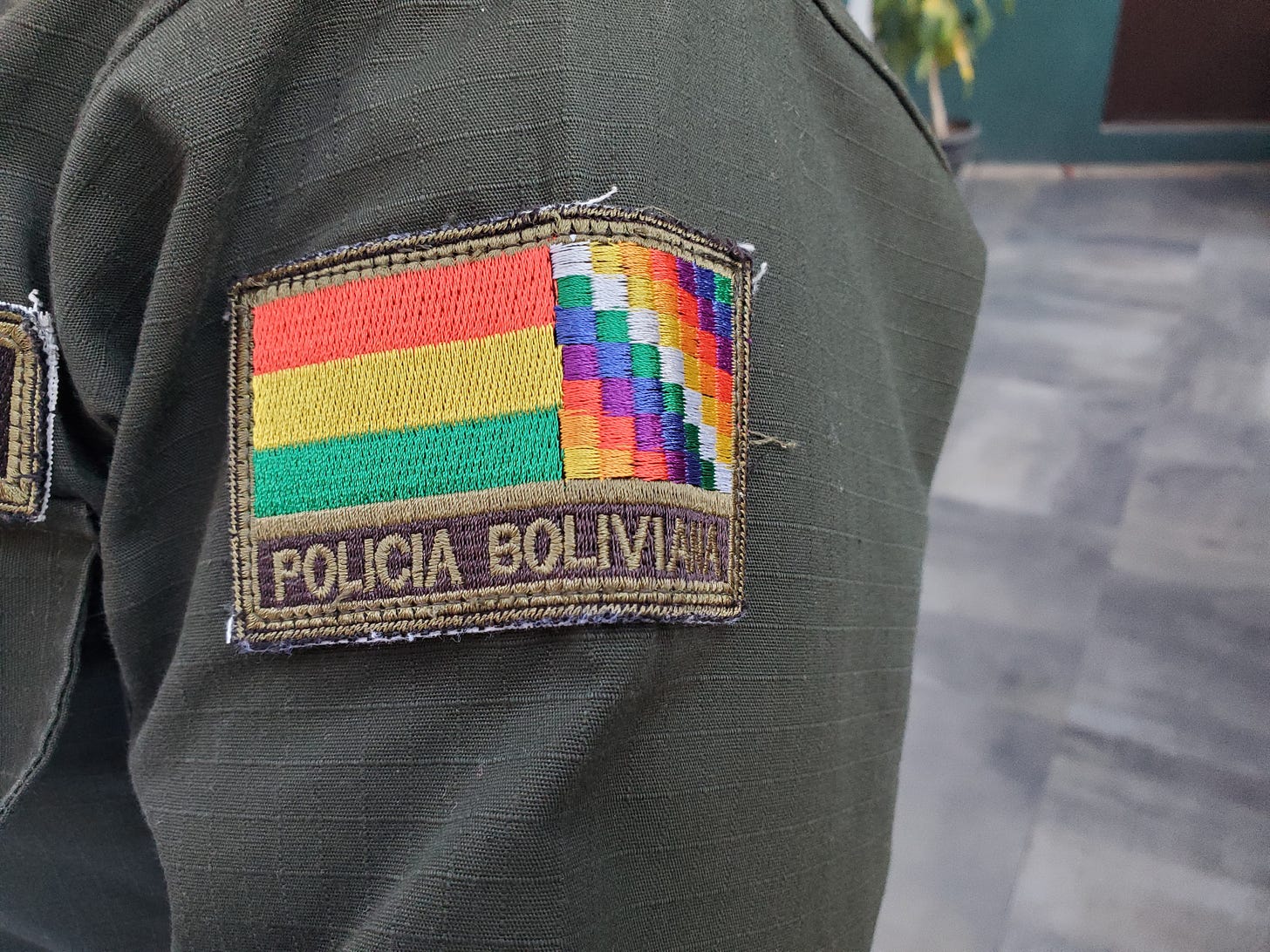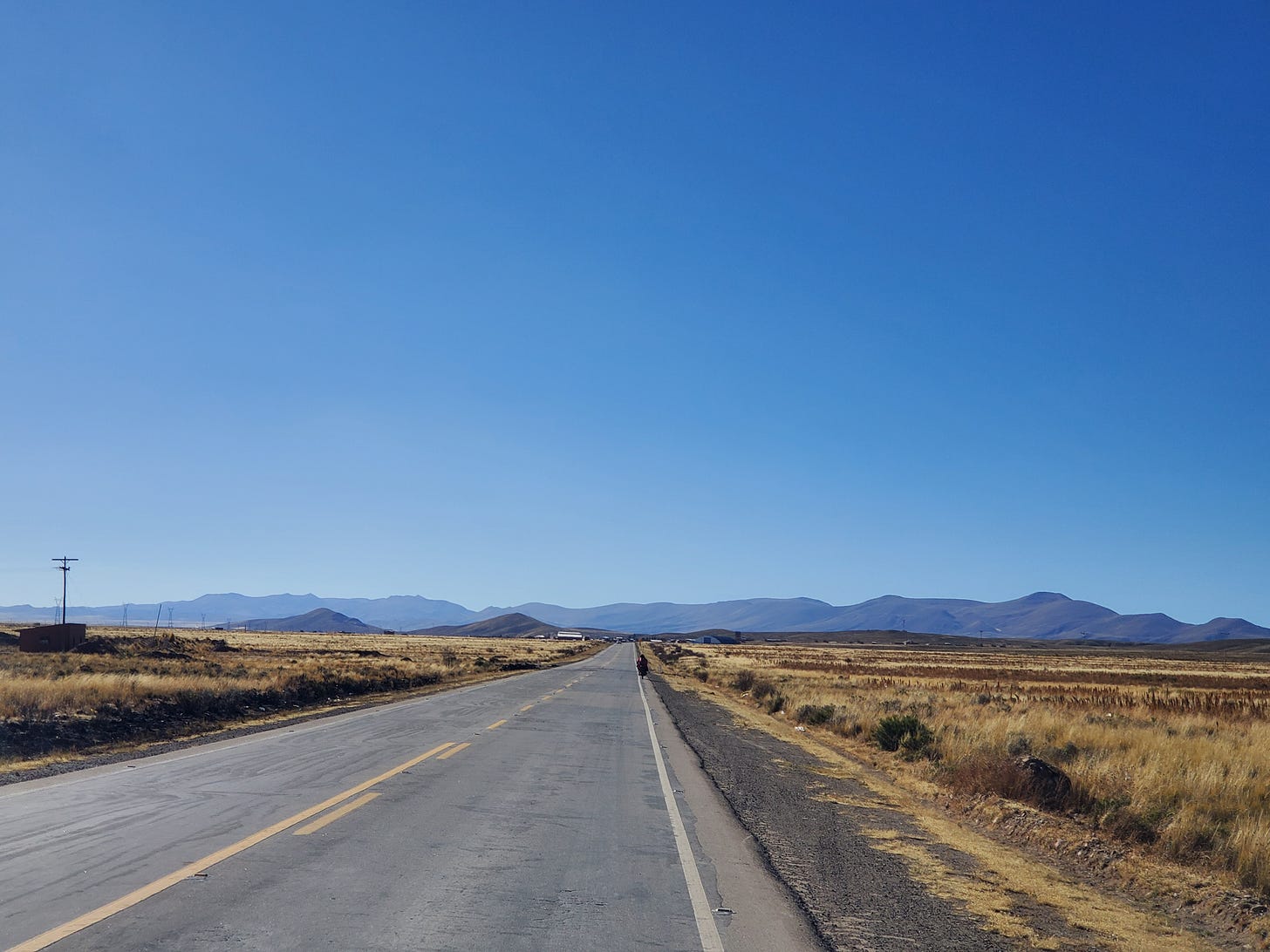It is hard to write briefly of Bolivia, all the more so because within a day of my riding out of La Paz, and within an hour of crossing the border to Peru, an attempted coup tried but failed to overthrow the country's two-decade socialist system, led currently by Luis Arce and most commonly associated with Evo Morales. Because Bolivians told me it was only political drama, because the putschists were quickly put-down and will stand trial, so as not to venture into political intrigue, I write instead of a month on the roads and towns of the country.
The most difficult element of writing Bolivia is to avoid romanticism, but equally it is impossible not to write that which makes Bolivia so special. The border crossing and the police badge I saw early on, containing both the national flag of Bolivia and the Wiphala flag of the Andean people. I tried to consider the notion of a US police officer with a Navajo badge on their sleeve, or a Chilean carbiniero with the Mapuche flag, but such an notion was out of reach of my imagination. Officially Bolivia is the Estado Plurinacional de Bolivia, and that idea of a plurinational country, where the state is comprised of, and not built on top of, those who first were in this land is written through the fabric of the society.
To visit Bolivia immediately after Chile only enforces the value of this distinction. In Chile, where the Mapuche and Aymara have been subordinated by the state, with more success in the case of the Aymara and less in the case of the Mapuche, the cleaves of such extermination leave their marks in the military police stationed at junctions, and the constant visibility of a state where decay is frequently visible and a sense of cohesion hard to find. Associated with this is the spectre of racism, and never before has it been so obvious what a state loses out on - cohesion, ease, joy - where it instead has racism within its founding mix. As the US floats atop the cultureless unknowing that stems from its founding extermination of Native Americans, as the Israelis continue yet fail in their efforts to exterminate the Palestinian presence their colonial project is built atop, the force of indigenous culture is not only a romantic luxury but a core component of the societies we make and how we understand ourselves in a world that changes rapidly.






